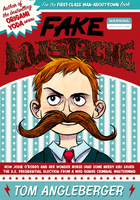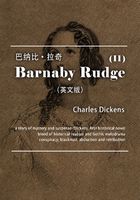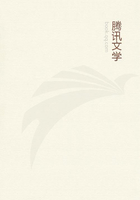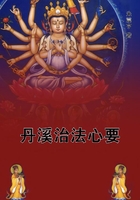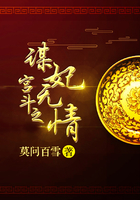Of the Natural Progress of Opulence
BOOK THREE Of the Different Progress of Opulence in Different Nations
THE great commerce of every civilised society is that carried on between the inhabitants of the town and those of the country. It consists in the exchange of rude for manufactured produce, either immediately, or by the intervention of money, or of some sort of paper which represents money. The country supplies the town with the means of subsistence and the materials of manufacture. The town repays this supply by sending back a part of the manufactured produce to the inhabitants of the country. The town, in which there neither is nor can be any reproduction of substances, may very properly be said to gain its whole wealth and subsistence from the country. We must not, however, upon this account, imagine that the gain of the town is the loss of the country. The gains of both are mutual and reciprocal, and the division of labour is in this, as in all other cases, advantageous to all the different persons employed in the various occupations into which it is subdivided. The inhabitants of the country purchase of the town a greater quantity of manufactured goods, with the produce of a much smaller quantity of their own labour, than they must have employed had they attempted to prepare them themselves. The town affords a market for the surplus produce of the country, or what is over and above the maintenance of the cultivators, and it is there that the inhabitants of the country exchange it for something else which is in demand among them.
The greater the number and revenue of the inhabitants of the town, the more extensive is the market which it affords to those of the country; and the more extensive that market, it is always the more advantageous to a great number. The corn which grows within a mile of the town sells there for the same price with that which comes from twenty miles distance. But the price of the latter must generally not only pay the expense of raising and bringing it to market, but afford, too, the ordinary profits of agriculture to the farmer. The proprietors and cultivators of the country, therefore, which lies in the neighbourhood of the town, over and above the ordinary profits of agriculture, gain, in the price of what they sell, the whole value of the carriage of the like produce that is brought from more distant parts, and they have, besides, the whole value of this carriage in the price of what they buy. Compare the cultivation of the lands in the neighbourhood of any considerable town with that of those which lie at some distance from it, and you will easily satisfy yourself how much the country is benefited by the commerce of the town. Among all the absurd speculations that have been propagated concerning the balance of trade, it has never been pretended that either the country loses by its commerce with the town, or the town by that with the country which maintains it.
As subsistence is, in the nature of things, prior to conveniency and luxury, so the industry which procures the former must necessarily be prior to that which ministers to the latter. The cultivation and improvement of the country, therefore, which affords subsistence, must, necessarily, be prior to the increase of the town, which furnishes only the means of conveniency and luxury. It is the surplus produce of the country only, or what is over and above the maintenance of the cultivators, that constitutes the subsistence of the town, which can therefore increase only with the increase of this surplus produce. The town, indeed, may not always derive its whole subsistence from the country in its neighbourhood, or even from the territory to which it belongs, but from very distant countries; and this, though it forms no exception from the general rule, has occasioned considerable variations in the progress of opulence in different ages and nations.
That order of things which necessity imposes in general, though not in every particular country, is, in every particular country, promoted by the natural inclinations of man. If human institutions had never thwarted those natural inclinations, the towns could nowhere have increased beyond what the improvement and cultivation of the territory in which they were situated could support; till such time, at least, as the whole of that territory was completely cultivated and improved. Upon equal, or nearly equal profits, most men will choose to employ their capitals rather in the improvement and cultivation of land than either in manufactures or in foreign trade. The man who employs his capital in land has it more under his view and command, and his fortune is much less liable to accidents than that of the trader, who is obliged frequently to commit it, not only to the winds and the waves, but to the more uncertain elements of human folly and injustice, by giving great credits in distant countries to men with whose character and situation he can seldom be thoroughly acquainted. The capital of the landlord, on the contrary, which is fixed in the improvement of his land, seems to be as well secured as the nature of human affairs can admit of. The beauty of the country besides, the pleasures of a country life, the tranquillity of mind which it promises, and wherever the injustice of human laws does not disturb it, the independency which it really affords, have charms that more or less attract everybody; and as to cultivate the ground was the original destination of man, so in every stage of his existence he seems to retain a predilection for this primitive employment.
Without the assistance of some artificers, indeed, the cultivation of land cannot be carried on but with great inconveniency and continual interruption. Smiths, carpenters, wheelwrights, and ploughwrights, masons, and bricklayers, tanners, shoemakers, and tailors are people whose service the farmer has frequent occasion for. Such artificers, too, stand occasionally in need of the assistance of one another; and as their residence is not, like that of the farmer, necessarily tied down to a precise spot, they naturally settle in the neighbourhood of one another, and thus form a small town or village. The butcher, the brewer, and the baker soon join them, together with many other artificers and retailers, necessary or useful for supplying their occasional wants, and who contribute still further to augment the town. The inhabitants of the town and those of the country are mutually the servants of one another. The town is a continual fair or market, to which the inhabitants of the country resort in order to exchange their rude for manufactured produce. It is this commerce which supplies the inhabitants of the town both with the materials of their work, and the means of their subsistence. The quantity of the finished work which they sell to the inhabitants of the country necessarily regulates the quantity of the materials and provisions which they buy. Neither their employment nor subsistence, therefore, can augment but in proportion to the augmentation of the demand from the country for finished work; and this demand can augment only in proportion to the extension of improvement and cultivation. Had human institutions, therefore, never disturbed the natural course of things, the progressive wealth and increase of the towns would, in every political society, be consequential, and in proportion to the improvement and cultivation of the territory or country.
In our North American colonies, where uncultivated land is still to be had upon easy terms, no manufactures for distant sale have ever yet been established in any of their towns. When an artificer has acquired a little more stock than is necessary for carrying on his own business in supplying the neighbouring country, he does not, in North America, attempt to establish with it a manufacture for more distant sale, but employs it in the purchase and improvement of uncultivated land. From artificer he becomes planter, and neither the large wages nor the easy subsistence which that country affords to artificers can bribe him rather to work for other people than for himself. He feels that an artificer is the servant of his customers, from whom he derives his subsistence; but that a planter who cultivates his own land, and derives his necessary subsistence from the labour of his own family, is really a master, and independent of all the world.
In countries, on the contrary, where there is either no uncultivated land, or none that can be had upon easy terms, every artificer who has acquired more stock than he can employ in the occasional jobs of the neighbourhood endeavours to prepare work for more distant sale. The smith erects some sort of iron, the weaver some sort of linen or woollen manufactory. Those different manufactures come, in process of time, to be gradually subdivided, and thereby improved and refined in a great variety of ways, which may easily be conceived, and which it is therefore unnecessary to explain any further.
In seeking for employment to a capital, manufactures are, upon equal or nearly equal profits, naturally preferred to foreign commerce, for the same reason that agriculture is naturally preferred to manufactures. As the capital of the landlord or farmer is more secure than that of the manufacturer, so the capital of the manufacturer, being at all times more within his view and command, is more secure than that of the foreign merchant. In every period, indeed, of every society, the surplus part both of the rude and manufactured produce, or that for which there is no dema nd at home, must be sent abroad in order to be exchanged for something for which there is some demand at home. But whether the capital, which carries this surplus produce abroad, be a foreign or a domestic one is of very little importance. If the society has not acquired sufficient capital both to cultivate all its lands, and to manufacture in the completest manner the whole of its rude produce, there is even a considerable advantage that rude produce should be exported by a foreign capital, in order that the whole stock of the society may be employed in more useful purposes. The wealth of ancient Egypt, that of China and Indostan, sufficiently demonstrate that a nation may attain a very high degree of opulence though the greater part of its exportation trade be carried on by foreigners. The progress of our North American and West Indian colonies would have been much less rapid had no capital but what belonged to themselves been employed in exporting their surplus produce.
According to the natural course of things, therefore, the greater part of the capital of every growing society is, first, directed to agriculture, afterwards to manufactures, and last of all to foreign commerce. This order of things is so very natural that in every society that had any territory it has always, I believe, been in some degree observed. Some of their lands must have been cultivated before any considerable towns could be established, and some sort of coarse industry of the manufacturing kind must have been carried on in those towns, before they could well think of employing themselves in foreign commerce.
But though this natural order of things must have taken place in some degree in every such society, it has, in all the modern states of Europe, been, in many respects, entirely inverted. The foreign commerce of some of their cities has introduced all their finer manufactures, or such as were fit for distant sale; and manufactures and foreign commerce together have given birth to the principal improvements of agriculture. The manners and customs which the nature of their original government introduced, and which remained after that government was greatly altered, necessarily forced them into this unnatural and retrograde order.




